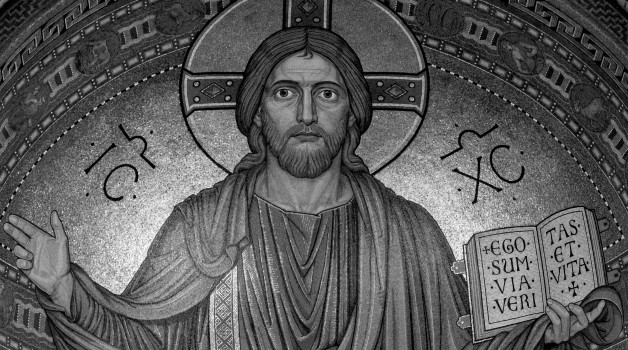As this text from The Banner — The official journal of the Christian Reformed Church — factors out, the CRC Basic Synod of this yr had an attention-grabbing dialogue relating to Penal Substitutionary Atonement (PSA), which is likely one of the many theories to know and interpret the that means of Christ’s sacrifice.
Attention-grabbing to me was the query of whether or not the denial of PSA may represent a ‘heresy’ or not. The CRC synod, after some deliberation, concluded:
[I]t is a critical deviation from the teachings of the confessions of the Christian Reformed Church to in any manner deny that Jesus Christ’s life, loss of life, and resurrection present a substitutionary work of bearing God’s wrath on our behalf due to the simply punishment we deserve for our sin.
Though it didn’t label the denial of PSA as a ‘heresy,’ the synod acknowledged it was a “critical deviation” from the Reformed Confessions.
As I replicate on this motion, I couldn’t agree extra with their conclusion! It is very important acknowledge when a specific educating or its denial is perhaps problematic. Denying the penal substitutionary dimension of Christ’s sacrifice not solely goes towards the testimony of Scriptures, but additionally towards the aim of Christ’s redemptive work. The PSA claims that Christ suffered on our behalf, since we deserved punishment due to our sins. On this respect, I believe the Penal Substitution concept affords a primary framework to know of the doctrine of atonement.
The PSA has acquired vital critique, particularly from some feminist liberal teams relating to the obvious little one abuse of the Father and the Son. This has made many individuals suspicious about this concept. Nonetheless, this critique might be discarded when one considers that the connection between a human father/son is maybe not univocally however analogous to the connection God the Father/the Son. These feminist theologians are inclined to ignore this and its broader implications. Not solely the connection between Father/the Son and the human father/son should not univocally; their energy relation is just not the identical. Whereas there’s a clear distinction by way of energy and standing relating to a human father/mom vs. a human little one, it appears there isn’t a such a factor within the divine interrelationships.
For my part, so as to declare a baby abuse or mistreatment within the atonement, it’s wanted a transparent distinction of energy between God and Christ when God decides that the Son would die within the cross. Since this divine determination didn’t occur in the course of the life and ministry of Jesus the incarnated Son however earlier than the muse of the world, there’s not a purpose to talk of abuse when each events shared the identical glory and energy within the Trinity. In different phrases, in the course of the life and ministry of Jesus, what occurred within the yr 30/33 was not a father’s determination to supply his son as sacrifice however as an alternative the belief of what God the Father and God the Son had agreed within the pre-temporal covenant of redemption.
For reformed folks, Penal Substitutionary Atonement constitutes an necessary a part of our Confessions and we must be clear about it. However as professor and theologian from Calvin Seminary, Dr. Mary Vanderberg, argues within the referenced article, there are different noteworthy theories to know the atonement. All of them spotlight sure biblical verses, emphasizing completely different points of the that means of Christ’s sacrifice.
On the finish, labeling the denial of Penal Substitutionary Atonement as a ‘heresy’ is perhaps appropriate if we perceive it broadly. However labeling in the way in which the CRC Synod wished will depend upon how we outline a ‘heresy’ narrowly. What’s for certain it’s that the denial of PSA departs from the reformed custom, in addition to diminishing the highly effective significance of Christ’s redemptive work.
Associated


